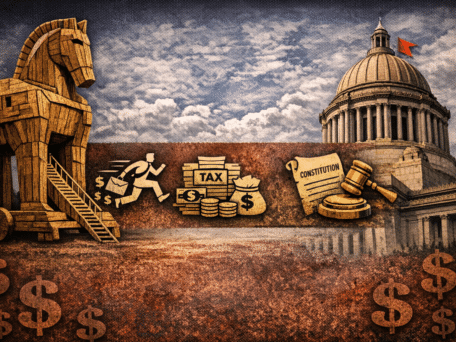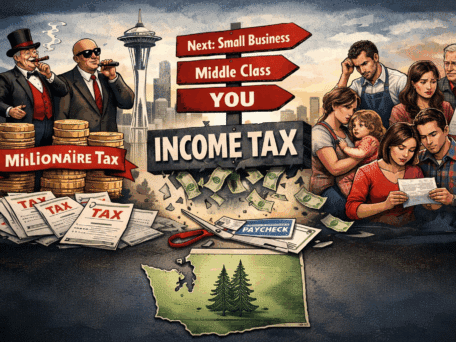The Washington State Supreme Court has ruled that that the city of SeaTac’s $15 minimum wage law applies to airport facilities under the jurisdiction of the Port of Seattle. That means all businesses operating at SeaTac airport will now be required to establish a new minimum wage of $15 per hour.
The court’s decision in Filo Foods vs. The City of SeaTac (spearheaded by Alaska Airlines and the Washington Restaurant Association) is a reversal of a King County Superior Court judge’s previous ruling that found SeaTac’s $15 minimum wage initiative did not apply to the airport. Big labor appealed the decision resulting in the eventual dismissal of all four challenges presented by plaintiff Filo Foods by the state Supreme Court. The Freedom Foundation,
“In sum, the Washington State Supreme Court upheld Proposition 1 ‘in its entirety’ and found it to be fully applicable to employers doing business at the airport.
“Alaska Airlines and Port of Seattle officials have both expressed concern over the new ruling, saying that it will lead to less competition and a greater burden on airport businesses. Not surprisingly, Alaska Airlines will be most affected by the new law. The company is based in SeaTac, and it will be required to provide more of its employees with higher wages, especially compared to other airlines.”
Big labor delighted over the court’s ruling. SEIU 775 President David Rolf—whose union spent hundreds of thousands of dollars to pass the $15 minimum wage in SeaTac—declared that the ruling was “one more accelerant for the national $15 movement.”
Of course, Rolf would be excited over the ruling—especially since it means labor stands to benefit even more from the law that exempts unions. It wasn’t too long ago that Rolf admitted the $15 minimum wage law was meant to help unions organize new firms. As Shift has reported, the law encourages “employers to become union shops in order to take advantage of the exemptions.” The bill would make unionization a “low cost option for employers to avoid paying the otherwise mandated benefits.” More unionized employers means more union members which means more union dues, which means more campaign money for Democrat politicians.




